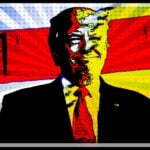It is quite interesting to see how widespread some languages are, with some having over a billion speakers while others are spoken by a single tribe. Languages have evolved due to the need for people to communicate and have likewise undergone changes over time.
The differences between are as little as the differences between English in Britain and in the US.
There is a rather peculiar case of languages in the former Yugoslavia, where governments have created four supposedly different languages out of one single language. The people of Serbia, Croatia, Bosnia, and Montenegro all speak the same language, the Serbo-Croatian language, yet their respective governments claim that they speak Serbian, Croatian, Bosnian and Montenegrin. This would be the equivalent of Australians claiming that they speak Australian, Americans claiming that they speak American, and the British claiming that they speak British, despite all of them speaking English and perfectly understanding each other.
In reality, the differences between how people speak in the former Yugoslavia are as little as the differences between English in Britain and the United States. The only notable thing to mention is that Serbia and Montenegro have, in addition to the Latin alphabet, also the Cyrillic one, but apart from this, these four countries speak the same exact language. Nonetheless, their respective governments sought to courageously protect their people from not speaking a language named after their national identity.
The Origin Language and Its Subsequent Divisions
Serbo-Croatian was created in 1850 in Vienna by mutual agreement from several scholars. Prior to that, the people of the Balkans all spoke some archaic form of Serbo-Croatian and while they could still understand each other, it was not standardized, and the majority of the people were illiterate so there were few traces of it in writing, too. Prominent linguists and writers such as Vuk Stefanović Karadžić and Ivan Mažuranić, among many others, got together to form a language by combining elements of all the forms of Serbo-Croatian that were being spoken at the time.
Their politicians stated that they can no longer speak the same language.
Despite some setbacks, it was soon accepted by the international community as well as at home, and it was the official language of the Kingdom of Yugoslavia (1918-1941) and the Socialist Federal Republic of Yugoslavia (1945-1991), with another prominent reform of it being carried out in 1954 in Novi Sad. When the country disintegrated into a bloody civil war in 1991, one republic after another quickly began to rename the language to its own particular nation.
The most absurd political stunt with Serbo-Croatian has happened in Bosnia, where Serbs, Croats, and Bosniaks all live. However, all three sides fought against each other during the bloody civil war in the 90s, and, thus, their politicians stated that they can no longer speak the same language, with each group having renamed Serbo-Croatian to their own national group.
Signs in Bosnia are thus written in Croatian (Latin script), Bosnian (Latin script) and Serbian (Cyrillic script) – which means that they are writing the exact same thing three times. Due to the inter-ethnic tensions in the region, places with a Serb majority black out the words in Bosnian and Croatian with graffiti and vice versa in Croatian and Bosnian regions. The people living in Bosnia are often confused as to how to call the language and just call it “our language.”
Linguistic Chest-Pounding
Croatia is the most adamant about keeping its language strictly Croatian, even having words which are commonly used in pop culture banned in schools because they are regarded as “Serbian.” Some Croatians even regard Vuk Stefanović Karadžić as one of the proponents of a Bigger Serbia, a fascist movement that is responsible for the genocide in Bosnia, despite the fact that Karadžić himself wanted to unite Serbs and Croats by having them speak the same language.
Ivo Andrić, who won the Nobel Prize in literature in 1961, was also banned in Croatia during the 1990s due to him being a Serb, despite never engaging in any nationalist rhetoric. Croatia is also not in favor of having any connections with Serbia due to the war, yet Ireland and England fought a war, and English is still the official language in Ireland. The same goes for the UK and the United States, yet Americans still speak English and not American. Algeria also has French as one of their languages in use, despite the bloody war for Algerian Independence in the 50s. There are numerous other examples.
This did not stop the Austrians from creating one of the greatest empires in Europe with its own distinct culture, despite speaking German.
The Cyrillic alphabet is another peculiarity and often used by Serbian nationalists to cry out against discrimination. Unlike its Russian counterpart, the letters in the Serbian Cyrillic are an exact match for the Latin alphabet and thus everything written in Cyrillic could easily be written again in Latin script, letter for letter. This means that Serbians are only keeping it there for the sake of “tradition.” There is no single rational explanation why the government ought to spend additional money to print every single road sign, every single administrative document, and many other things in both Cyrillic and Latin letters.
Being that the majority of books are written in Cyrillic, it is, of course, necessary that it should be taught in schools, but it is obsolete and used solely as a political tool. At the time of its invention, it was revolutionary, but languages, just like other things, develop and improve over time. Signs in Belgrade are written in Cyrillic and English, so a person visiting from Croatia, despite it technically being his mother language, has to read the signs in English.
When Montenegro declared independence in 2006, it also sought to have its own language – claiming that they cannot be an independent Montenegrin nation without having their own language. Yet this did not stop the Austrians, nor the Swiss, from creating some of greatest empires and countries in Europe with their own distinct cultures, despite their speaking German.
Among the ranks of generals in Yugoslavia during World War II, well over half were Montenegrins, and during the 19th century, some of the greatest literary works from the Balkans came from Montenegro. Somehow they mysteriously managed to achieve all of this without the official language being called Montenegrin, but rather Serbian or Serbo-Croatian instead. The demagogues sitting in Podgorica did not offer an answer to this mystery.
The government added 2 new letters to their alphabet, with one of them not even being used in everyday conversation.
When the government created the first Grammar Book of the Montenegrin language, it became a laughing stock on the internet with many Montenegrins having no idea what some of the words even meant. The government likewise added two new letters to their alphabet, with one of them not even being used in everyday conversation.
A Simple Solution, but Not an Easy One
A rational solution would be to call the language the Yugoslav language as it is the language of the Southern Slavs (jug = south). However, this would signal cooperation, and demagogues in the region win votes by blaming the other side for their troubles. Another rational solution would be to restrict the use of the Cyrillic alphabet to schools as it is obsolete and thus save tax money by not having to print out everything twice.
However, this would also not allow Serbian politicians to cry out against supposed unfair treatment when people living in Vukovar, a town where Serbian nationalists massacred over 200 civilians in one night in 1991, refuse to put up signs in Cyrillic.
Luka Nikolic
Luka Nikolic is a Master’s student at the University of Ljubljana. He holds a Bachelor’s Degree in Business and Economics from the same University and his main interests are economics, politics, and finance. He was born in 1995 in Subotica, Serbia and is looking to pursue a career in investment banking.
This article was originally published on FEE.org. Read the original article.














